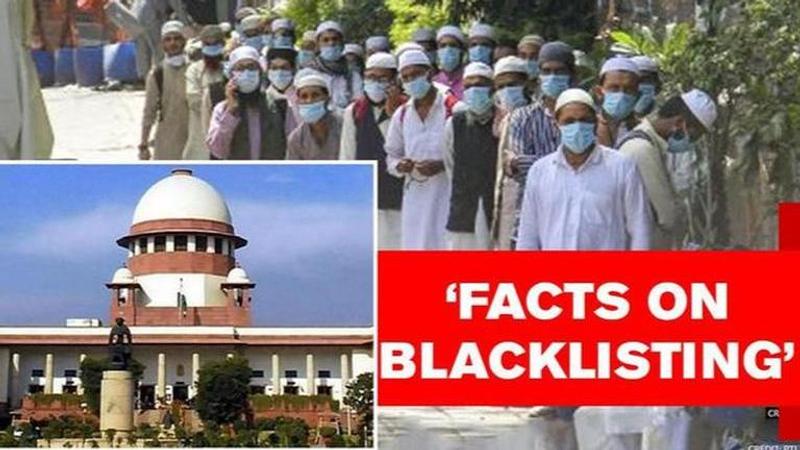Published 18:45 IST, June 29th 2020
SC seeks facts on blacklisting of foreign Tablighis from Centre; next hearing on July 2
The SC sought information from the Centre about the blacklisting and cancellation of visas of foreign nationals who attended the Markaz Nizamuddin congregation

On Monday, a three-judge Supreme Court bench comprising Justices AM Khanwilkar, Dinesh Maheshwari and Sanjiv Khanna sought information from the Centre about the blacklisting and cancellation of visas of foreign nationals who attended the Markaz Nizamuddin religious congregation in Delhi. The bench was hearing a number of petitions challenging the blacklisting and cancellation of foreigner Tablighi Jamaat members by the Ministry of Home Affairs. During the hearing, the apex court questioned Solicitor General Tushar Mehta on why the foreign Tablighis were still in India despite their visas being cancelled. After Mehta sought more time to file a reply, the SC fixed the matter for further hearing on July 2.
Pleas in the SC
Around 2,500 foreigners were blacklisted for a period of 10 years from travelling to India for their alleged involvement in Tablighi Jamaat activities. Filed by foreign Tablighis from 35 countries, the petitions have demanded directions to the MHA to remove their names from the blacklist, reinstate their visas and facilitate their return to their respective countries. They termed the "unilateral blacklisting" of foreigners as a violation of Article 21 of the Constitution. On June 5, the Centre had informed the SC that there was no need for a CBI investigation into the Tablighi Jamaat congregation.
The Markaz controversy
The controversy erupted when 24 people who had attended the religious congregation at Markaz Nizamuddin tested positive for COVID-19. Thousands of people who participated in the event travelled to various states in India, risking the spread of the novel coronavirus. According to the Ministry of Home Affairs, 1746 individuals including 216 foreigners were staying in the Markaz building as of March 21.
As per the Delhi government, the religious congregation violated the prevailing orders, which prohibited large gatherings. However, the Markaz claimed that it had not flouted the rules and discontinued the religious function after the announcement of the nationwide lockdown. Instead, it alleged that many of the attendees were stuck due to the unavailability of transport services.
On March 31, the Delhi Police registered a case against Maulana Saad and other officials of Tablighi Jamaat under sections od the Epidemic Disease Act,1897 and Section 269, 270, 271, and 120-B of the Indian Penal Code. In the FIR, it has been stated that the congregation failed to take safety measures for the prevention and treatment of COVID-19. As of April 3, 30% of the total COVID-19 cases in India were linked to the Tablighi Jamaat religious congregation.
(With ANI inputs)
Updated 18:45 IST, June 29th 2020




